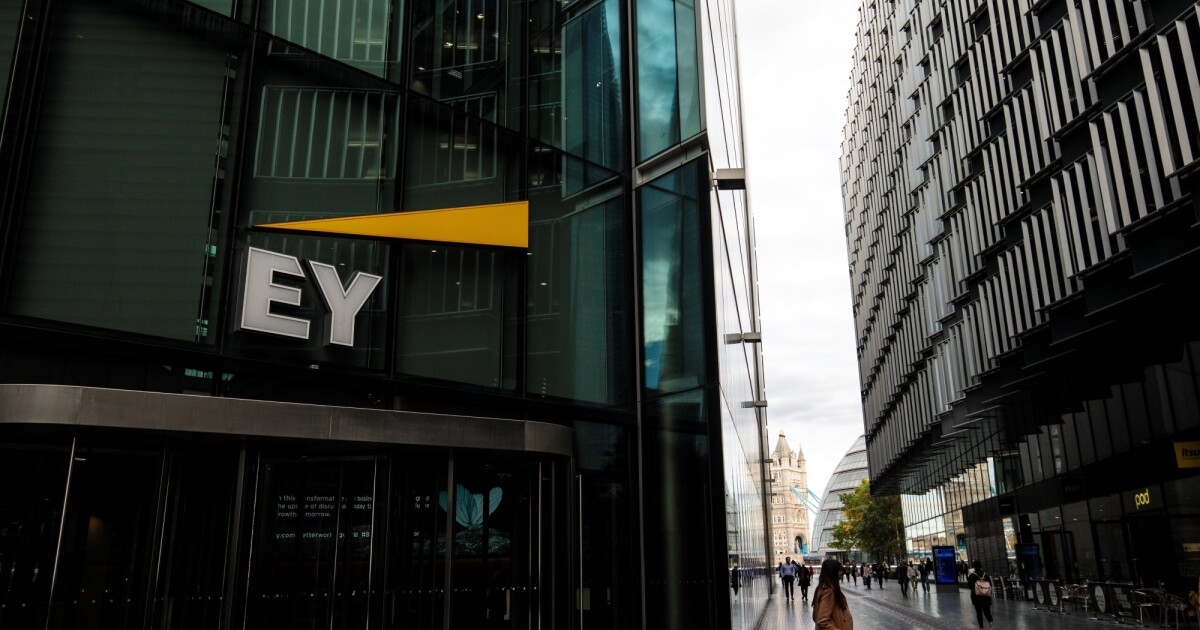Chicago’s bid to become the Silicon Valley of the Midwest has registered some major wins in recent years: Google bought a huge downtown building, PsiQuantum Corp. announced a $1 billion investment in the city, and local startups raised a record $19 billion in 2022.
Now a move to increase an unusual tax on cloud computing risks adding to a broader technology industry downturn to derail progress in the third-largest U.S. city.
Faced with a nearly $1 billion deficit for next year, Mayor Brandon Johnson has proposed an additional $128 million in revenue by increasing the levy, first implemented in 2016. The plan, expected to be voted on by the City Council’s finance committee on Tuesday, is spurring criticism from business leaders already fighting the progressive politician over everything from crime to the future of the city’s schools.
“This isn’t good,” said Chris Deutsch, founder of Chicago-based Lofty Ventures, which invests in startups. “They’re just going to keep ratcheting up these taxes and it’s going to really hurt business and the entire tech community here. Maybe not immediately but over time, this is a terrible trend and will absolutely hurt us.”
Johnson, a former union organizer who surprised pundits when he beat incumbent Lori Lightfoot, had already alienated many of the city’s economic leaders by proposing a series of taxes on the rich. All at a time when the Chicago area is contending with the loss of firms including Citadel, Boeing Co., Caterpillar Inc. and the local offices of Tyson Foods Inc.
The mayor’s plan to raise taxes on sales of million-dollar homes failed in a referendum and Illinois Governor JB Pritzker said he would block Johnson’s ambitions to establish a financial transaction tax. Raising the levy on cloud computing could be a solution after City Council members rebuked Johnson’s plan for a $300 million property tax increase in a historic 50-0 vote.
“That one is the least egregious of a lot of things that are out there,” said Alderman Brian Hopkins, who said Johnson is getting closer to securing the votes he needs to pass the budget before the Dec. 31 deadline.
A spokesperson for the city’s finance and budget departments said the tax is based on usage, minimizing the impact on small businesses. For example, a small business using the starter suite of Salesforce Inc. for one user would see the levy increase by just 50 cents a month, according to a statement to Bloomberg.
“This approach balances the need for additional revenue with the city’s commitment to supporting economic growth and remaining an attractive environment for businesses of all sizes,” the spokesperson said.
Competitive disadvantage
Chicago is one of few cities in the country that taxes cloud computing and software — others include Denver and Washington, D.C. The tax, known as the Personal Property Lease Transaction, would be increased to 11% from the current rate of 9%.
Lucy Dadayan, a principal research associate at the Urban Institute warned that the levy may have “unintended consequences” by putting Chicago at a a competitive disadvantage.
“I don’t know the details of how this will come out, but the concern would be that you’re just driving people away from doing business in Chicago,” said Keith Todd, chief executive officer of Trading Technologies, a Chicago-based platform that offers clients access to derivatives trading. “All it will mean is that consumers will be disadvantaged.”
Chicago’s tech community experienced a surge in growth after the pandemic, when work-from-home became the norm, allowing people to move to places with a lower cost of living like Chicago. Startups in the city raised $19.2 billion in 2022, an increase of 85% from a year earlier. Funds became much more scarce last year due to high interest rates and a broader downturn that saw tech companies lay off workers across the country.
The city also gained a boost when Alphabet Inc.’s Google announced in 2022 that it was buying the James R. Thompson Center, an underused government-owned building that occupies a full city block downtown. A year earlier, the company made a $1 billion equity investment in Chicago-based CME Group Inc. to accelerate the U.S.’s largest derivatives exchange’s move to the cloud.
In July, PsiQuantum said it would invest more than $1 billion to become the anchor tenant at a new quantum and microelectronics park planned by Pritzker in the South Side of Chicago.
The Illinois governor, who founded tech startup incubator 1871, has been key in trying to turn the state into a hub for new technologies from quantum to electric vehicles and data centers. His sister Penny Pritzker, former Secretary of Commerce, has also given the city a boost with her nonprofit P33, which aims to turn Chicago into a center of innovation by 2033.
Chicago startups
Cloud computing is essential to many up-and-coming tech companies, which often use the cloud as their main form of software distribution, according to Betsy Ziegler, CEO of 1871.
“I’m less worried about Google and Amazon Web Services, I’m way more worried about the growth company that is trying to scale that has very constrained funds,” she said. “Does this create a constraint that reduces Chicago’s competitive environment to attract those companies to build here?”
While Chicago’s tech community has grown, the city only ranked 23 among top markets, according to an analysis by commercial real estate firm CBRE which used metrics including talent concentration, labor costs and attractiveness to companies. The city has also lost 9.5% of its tech workforce between 2018 and 2023, with the most of the decline taking place last year.
Cloud computing is now almost as commonplace as email in most workplaces, becoming an attractive source of revenue for governments. When Chicago started taxing the service in 2016, the rate was just 5.25%. Lightfoot boosted it to 9% during the pandemic. If Johnson’s proposal goes ahead, the 11% rate will bring a total of $818 million in revenue for the city, said Budget Director Annette Guzman.
The tax isn’t just a challenge for tech firms. About 5,000 companies are registered for the Personal Property Lease Transaction Tax, according to data from the city. These include CME, Citadel, Salesforce, Kraft Heinz Food Company, as well sports teams such the Cubs, the Blackhawks and the White Sox.
“We are strongly opposed,” said Jack Lavin, chief executive officer for the Chicagoland Chamber of Commerce. “This goes to the heart of what we are trying to do, which is to grow the economy.”


 Economics1 week ago
Economics1 week ago
 Economics1 week ago
Economics1 week ago
 Personal Finance6 days ago
Personal Finance6 days ago
 Economics5 days ago
Economics5 days ago
 Economics1 week ago
Economics1 week ago
 Personal Finance1 week ago
Personal Finance1 week ago
 Economics4 days ago
Economics4 days ago
 Personal Finance1 week ago
Personal Finance1 week ago












